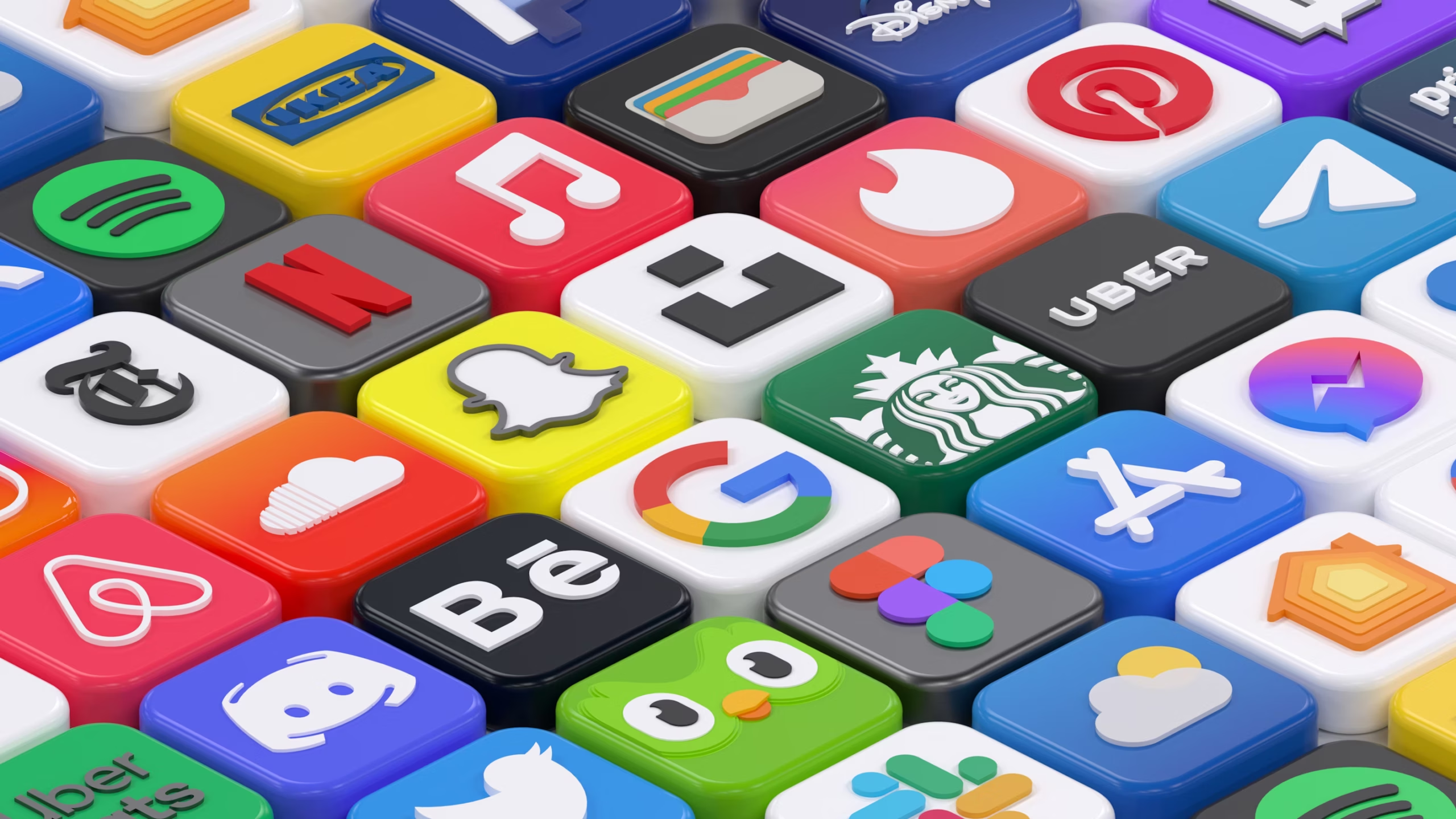Vodafone CEO Accelerator
July 14, 2025 at London (invitation only)

- Megatrends 2035: the 6 dramatic forces shaking up every market
- Accelerating Growth: Leading in a world of uncertainty, change, and opportunity
- Next Generation Business Models: redefining value, reinvented with AI
Jio has become the leading mobile services platform, and even lifestyle brand, of India.
Once you’ve picked up your almost free phone, you can start browsing the JioMart online, or get a home delivery from JioFood, sit back to watch a JioMovie, or play JioGames. Your home is connected by JioNet, with JioSecurity, powered by JioEnergy, and paid for by JioMoney.
Jio, of course, is a superapp, and over the last 8 years has become a leading consumer brand in the world’s most populated country today. What’s more impressive is that it comes from Reliance, the Indian industrial petrochemical conglomerate, led by Mukesh Ambani who needs sees his digital adventure as the future of his business empire.
Using telecoms as a platform for additional services is nothing new. It’s 18 years ago since Safaricom launched its local payments service, M-Pesa, in Africa. And then continued to extend its service portfolio, into areas such as healthcare and mobility. Over recent years many other telcos, and other service platforms, have evolved to offer communications alongside almost every digital service imaginable.
And yet, most traditional telcos, like AT&T and Deutsche Telekom, Verizon and Vodafone, have been left behind. Weighed down by outdated mindsets and legacy infrastructure, they try to compete on tariffs and add-ons, but seem increasingly desperate.
The telecoms industry is at a profound turning point.
What once was a utility sector built on selling voice minutes and data plans is now transforming into a collection of technology-driven ecosystems — platform businesses that span sectors as diverse as finance, retail, entertainment, healthcare, education, and mobility.
Across the world, the most forward-looking telcos are embracing a new identity: digital enablers of daily life and business, building superapps, launching banks, creating content platforms, and powering digital infrastructure for industries.
This reinvention is driven by a need to escape the commoditisation of connectivity — and by a massive opportunity to leverage their reach, data, and brands in new, value-added ways.

From communications to everyday platforms
The shift away from traditional voice and data is playing out globally, with innovators building service platforms that turn mobile subscribers into participants in broader ecosystems.
Financial services
Telcos have become critical players in financial inclusion and digital payments, particularly in emerging markets:
-
Safaricom’s M-Pesa dominates mobile money in Kenya and beyond, with payments, loans, health insurance, and more.
-
STC Pay became Saudi Arabia’s first licensed digital bank, integrating payments into a wider commerce ecosystem.
-
Tigo Money in Latin America supports remittances, microloans, and online commerce for millions of unbanked users.
-
Orange Bank offers full digital banking in Europe and West Africa, combining telco reach with fintech innovation.
These services are not side businesses — they are core to the telco’s evolving identity as trusted platforms for digital life.
Content ecosystems
From bundling Netflix to producing original content, telcos are embedding media into their core offerings:
-
JioCinema has emerged as a streaming giant in India, challenging YouTube and traditional broadcasters.
-
Movistar+ (Telefónica) integrates streaming, football rights, and smart home services across Spain and Latin America.
-
STC TV is expanding Arabic-language content and sports rights in the Middle East.
By combining content with connectivity, telcos increase customer stickiness, improve margins, and tap into the booming attention economy.
Superapp lifestyles
The most ambitious telcos are aiming to become “everything apps”, similar to WeChat or Grab:
-
Jio combines connectivity, payments, shopping, media, and health under one platform, backed by major tech investors.
-
Rakuten offers telecom, e-commerce, banking, and travel services — all tied together by a unified membership and points system.
-
Circles from Singapore provides a fully app-based, customizable telco experience with embedded lifestyle perks. Its Circles X platform is now white-labeled by telcos globally.
This convergence turns telcos into daily engagement platforms — not just network providers.
Opportunities in consumer markets
Health and Wellness
Telcos are moving into digital health by bundling:
-
Telemedicine services (video consults)
-
Mental health and wellbeing apps
-
Wearables for health tracking
Safaricom, MTN, and Airtel are experimenting with health platforms linked to mobile wallets. In developed markets, 5G-enabled wearables and home diagnostics are emerging areas.
Education and Skills
With mobile access surpassing school infrastructure in many regions, telcos are delivering:
-
Digital classrooms via mobile
-
Vocational and upskilling platforms (especially for youth and women)
-
Edtech bundles with data plans
Airtel India and Telkom Kenya are partnering with ministries to support hybrid learning in underserved areas.
Retail and Commerce
Telcos are building:
-
Marketplaces for third-party goods and services
-
QR code-based payments
-
Buy-now-pay-later options
This is especially impactful in markets with low credit card penetration, where telco billing systems can power consumer credit at scale.
Opportunities in business markets
While consumer platforms are expanding, the biggest commercial transformation may be in enterprise services. Telcos are now entering B2B markets not just as network providers but as digital transformation partners.
Industry-Specific Platforms
Telcos are building specialized platforms for sectors such as:
-
Agriculture: Safaricom and Airtel offer crop tracking, weather forecasts, and mobile payments for farmers.
-
Manufacturing: Telenor and Vodafone offer industrial 5G and IoT platforms for smart factories.
-
Logistics and transport: Telstra and HKT power fleet tracking and real-time asset management.
These go beyond basic connectivity to deliver end-to-end business solutions.
Edge Computing and 5G Services
With 5G rollout and the need for real-time processing, telcos are:
-
Deploying edge computing nodes near factories and hospitals
-
Offering network slicing for guaranteed service levels in critical applications
-
Partnering with hyperscalers (AWS, Azure) for hybrid cloud offerings
This supports real-time analytics, autonomous systems, and mission-critical applications in sectors like healthcare, utilities, and defense.
Cybersecurity and data services
Telefónica Tech, Singtel’s Ensign, and Orange Cyberdefense offer:
-
Managed cybersecurity services
-
Data privacy platforms
-
Threat detection and response centers
As businesses become data-driven, telcos’ trusted role makes them key players in enterprise security.
Small business partners
In developing markets, telcos like MTN and Tigo are creating bundles for small and medium enterprises (SMEs) that include:
-
Mobile point-of-sale systems
-
Cloud-based bookkeeping
-
Social commerce integration
These services are digitizing local economies and embedding telcos deeper into the business fabric of society.
Reinventing the telecoms world
The telco of the future will look more like a platform business than a utility — integrating technology, financial services, content, logistics, and cloud infrastructure into one cohesive experience.
What sets the most innovative telcos apart:
- Digital-native platforms (not legacy networks)
- Modular, customizable experiences for consumers and businesses
- Exportable software and APIs for global growth
- Cross-sector partnerships to enter high-growth markets like health and energy
No longer just conduits for communication, telcos are emerging as the connective tissue of the digital economy.
Telcos will evolve into personal operating systems — platforms that integrate every aspect of daily life, securely and seamlessly. Future telcos will offer services like:
Passport to the digital world
For consumers, your telco becomes your passport to the digital world — managing biometric ID, KYC, and secure logins across apps and services – a unified interface for:
- Finances (banking, payments, insurance)
- Entertainment (streaming, games, events)
- Mobility (ride-hailing, transport passes, EV charging)
- Health (wearables, telehealth, remote diagnostics)
- Commerce (shopping, rewards, buy-now-pay-later)
The leads to hyper-personalised experiences. Using AI, telcos can:
- Dynamically adapt plans based on usage
- Curate content and offers
- Suggest wellness or productivity insights
- Bundle services based on moments — e.g., “new job”, “moving house”, or “traveling abroad”
These services won’t feel like telco offerings — they’ll feel like life management tools.
For business, the telco of the future is not just an infrastructure vendor, it is the digital nervous system powering real-time operations, customer experiences, and innovation.
- Industry-specific platforms: For logistics, agriculture, healthcare, energy
- IoT & 5G orchestration: Enabling smart factories, connected cities, autonomous mobility
- Edge computing & cloud-native services: Latency-sensitive apps, AR/VR, industrial AI
- AI-as-a-Service: Insights from customer data, network intelligence, behavior analysis
- Cybersecurity fabric: Built-in, adaptive, and autonomous protection of enterprise systems
This makes telcos not just partners in digital transformation — but builders of digital ecosystems.
Reinvention or Irrelevance
From Jio in India to Rakuten in Japan, Safaricom in Africa to Circles in Southeast Asia, and STC in the Middle East — the most innovative players are redefining what it means to be a telecom company.
The ultimate goal: a telco that feels invisible but indispensable.
-
Invisible in its ease — no more managing plans, worrying about roaming, or chasing support.
-
Indispensable in its utility — enabling your health, wealth, relationships, work, and play.
The telco of the future is not your provider. It’s your digital twin, your trusted companion, and your gateway to a smarter, more connected life.
They are not just keeping people connected. They are reimagining how people live, learn, earn, shop, heal, and growin a digital-first world.